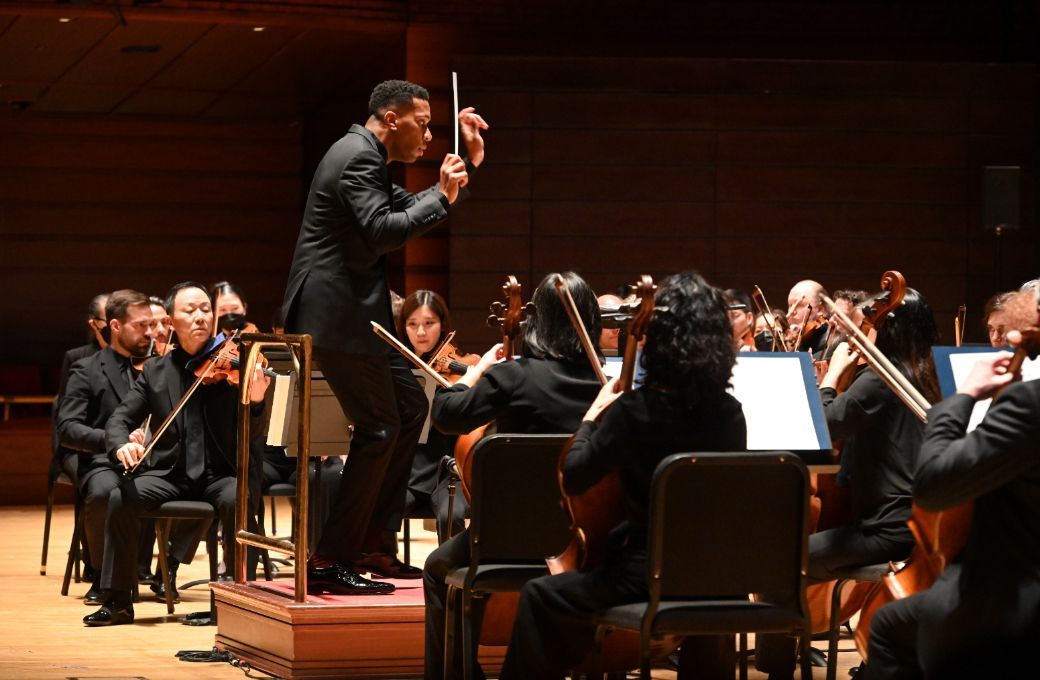The Philadelphia Orchestra’s first subscription concert of 2023 started off with a bang. Literally. Under the baton of debutant conductor Roderick Cox, the brass blasts that open John Adams’s Doctor Atomic Symphony thundered forth so vividly that you could practically visualize the mushroom cloud materializing over the New Mexico desert sky. They were matched by crashing timpani that could be mistaken for a rapidly beating heart. The composer distilled his opera about J Robert Oppenheimer’s moral dilemma in creating the atomic bomb into an action-packed suite of programmatic music, which Cox and the Philadelphians presented with rich coloring and a sense of narrative drive.

The buzz-sawing strings in the second movement lived up to its title: Panic. They gave voice to the deepening fears that accompanied harnessing nuclear power for purposes of good and evil. Trombonist Matt Vaughn was a blustery presence, representing General Leslie Groves, a rock-ribbed contrast to Oppenheimer’s growing indecisiveness. The concluding movement, Trinity, introduces the possibility of peace amid the chaos the spiraling anxiety. Adams achieves this through the hypnotic, repetitive quality that is a hallmark of his musical style. Throughout the performance, Cox managed to extract the full effect of each section of the orchestra, highlighting the necessity of their contributions without making the composition seem overstuffed.
Sibelius’ Violin Concerto in D minor remains an audience favorite, and its appeal is easy to grasp in the hands of a soloist like Augustin Hadelich. He approached the opening melodic lines with a lushness that, in lesser hands, might have come across as lachrymose, but with his caressing touch, it seemed both refined and passionate. Such full-bodied sound contrasted nicely with the rustic double stopping that came later in the Allegro moderato, and with the gentle, searching quality that the solo lines take on in the Adagio di molto. The Allegro ma non tanto had the energy of a vibrant country dance. Cox continually matched the spirit of his soloist within the orchestra, with a Romantic sound in the first movement, transparent textures in the second and thrilling abandon in the third.
Hadelich’s skill as a performer extends beyond his instrument. He is a fascinating presence onstage, riveting in his stillness and active listening even when he’s not playing. When he does pick up his bow, he appears to fuse entirely with the violin, as if he were the human personification of a glissando. It said a lot to watch the rapt attention the orchestral musicians lavished upon him during his graceful but unusual encore, Carlos Gardel’s Por una Cabeza.
Following these two powerful interpretations, the Second Suite from Daphnis et Chloé felt almost perfunctory – at least on paper. Contrary to its dramatic origins, Ravel’s ballet extraction can come across sometimes as little more than pretty music. Yet Cox injected a real sense of propulsion into this reading of the score, and the orchestra responded with clean, focused playing. The young American conductor, currently living in Berlin, accomplished much across a wide range of music, and this introduction certainly warrants a return engagement.


